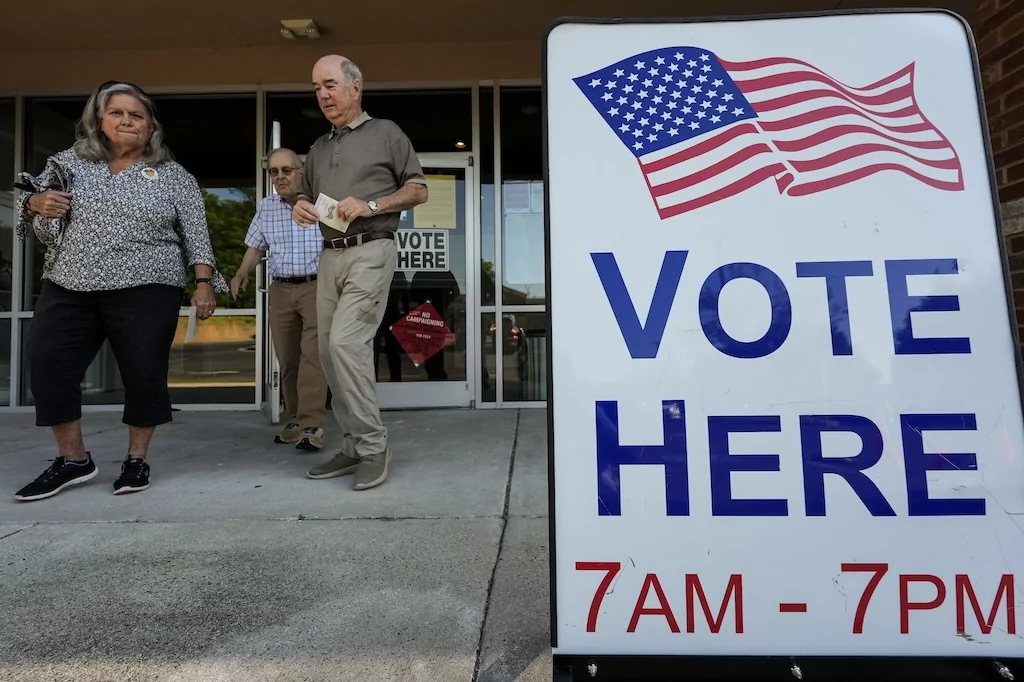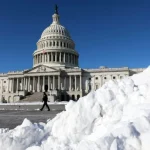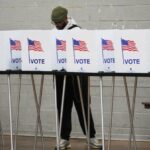

As early voting gets underway and ballots begin to be mailed out ahead of the general election, millions of people still plan to vote on Nov. 5.
In some countries, voting is compulsory, and citizens are given the day off to cast their ballots. This is not the case in the United States, where Election Day is not a federally mandated holiday, nor is it a requirement to give citizens time off of work to vote.
Congressional lawmakers have proposed various ways to give workers nationwide proper time to vote. Sen. Bernie Sanders (I-VT) introduced the “Democracy Day Act” in 2018, which proposed making Election Day a federal holiday, and House Democrats proposed the Time Off to Vote Act in 2022, which would require employers to provide their employees at least two hours of paid leave to vote in a federal election.
None of these bills, however, have come to fruition
However, it’s a popular idea. A 2018 Pew Research Center study found that 65% of people in the U.S. are in favor of making Election Day a national holiday.
“Election Day really definitely does need to be a holiday,” Vote.org CEO Andrea Hailey told CBS News.
“We need to be able to have everybody feel like they have a great stake in it,” she added.
Still, while congressional lawmakers have tried and failed to enact nationwide legislation, dozens of states have mandated time off to vote and some states have something of the sort in the works.
Here’s what to know about your state’s time off policy ahead of Election Day.
States have mandated paid time off for voting
States without an hour limit listed do not have a time limit specified in state law.
- Alaska
- Arizona (3 hours)
- California (2 hours)
- Colorado (2 hours)
- District of Columbia (2 hours)
- Hawaii (2 hours; employers may request proof of voting)
- Illinois (2 hours)
- Iowa (3 hours)
- Kansas (2 hours)
- Maryland (2 hours; employers may request proof of voting)
- Minnesota
- Missouri (3 hours; employers may request proof of voting)
- Nebraska (2 hours)
- Nevada (1-3 hours, depending on travel distance to one’s designated polling location)
- New Mexico (2 hours)
- New York
- Ohio (a “reasonable” amount of time, which is determined by employers, and only for salaried employees)
- Oklahoma (2 hours; this time limit can be increased depending on travel distance to one’s designated polling location)
- South Dakota (2 hours)
- Tennessee (3 hours)
- Texas
- Utah (2 hours; must be used at the beginning or end of your work shift)
- West Virginia (3 hours; employers may request proof of voting)
- Wyoming (1 hour outside of a lunch break; employers may request proof of voting)
States with mandated unpaid time off for voting
- Alabama (1 hour)
- Arkansas (Employer determines time allowed.)
- Georgia (2 hours)
- Kentucky (4 hours; employers may request proof of voting)
- Massachusetts (Time must be used within the first two hours of polls opening)
- Wisconsin (3 hours)
States that do not have any mandate any time off to vote
- Connecticut
- Delaware
- Florida
- Hawaii
- Idaho
- Indiana
- Louisiana
- Maine
- Michigan
- Mississippi
- Montana
- New Hampshire
- New Jersey
- North Carolina
- North Dakota
- Oregon
- Pennsylvania
- Rhode Island
- South Carolina
- Vermont
- Virginia
- Washington
Are any states in the works to have paid time off for voting?
Hawaii and Washington
These two states are a part of eight states that automatically mail ballots to registered voters. Hawaii and Washington no longer have voting leave laws because the states determined voting can effectively be done from home, eliminating the need for such laws.
Michigan
Michigan Secretary of State Jocelyn Benson has expressed support for paid time off for voting. She recently partnered with the Detroit Regional Chamber, which is one of the largest chambers of commerce in the country, to call upon businesses to provide time off for their employees to vote and encourage their employees to serve as poll workers.
CLICK HERE TO READ MORE FROM THE WASHINGTON EXAMINER
“A civically engaged business community is the key to a strong and healthy democracy. And a strong, healthy democracy is necessary for a thriving economy, like the one we’re growing in Michigan today and building for the future. Today is just the beginning — we’re inviting all Michigan business leaders to step up and join us,” Benson said in a statement.
There have been no formal pushes in the Michigan state legislature for any law on this, however.






